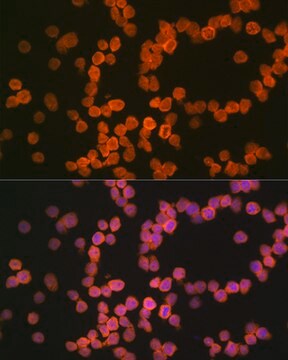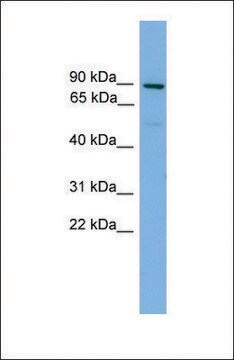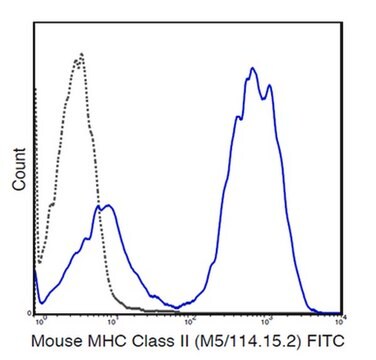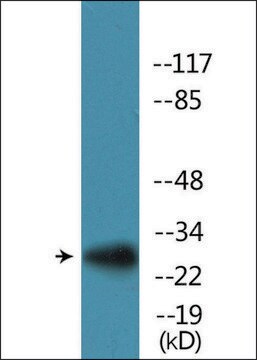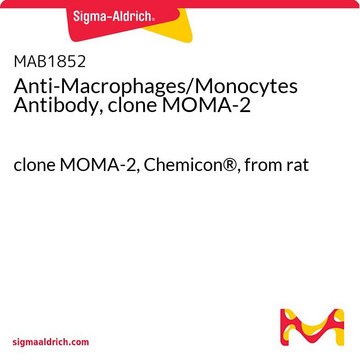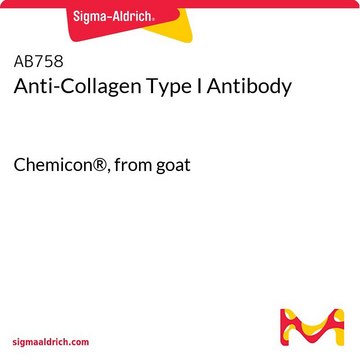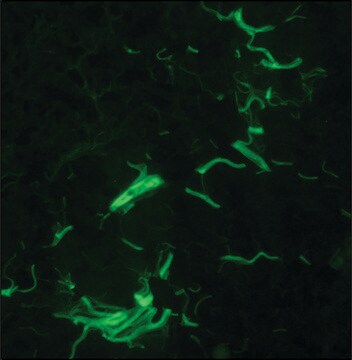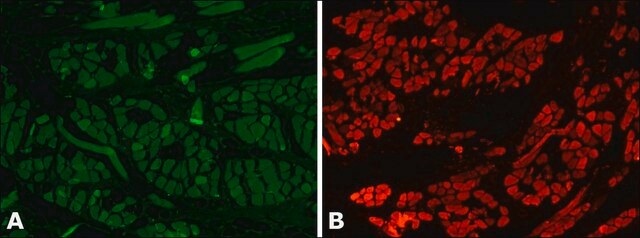SAB4700663
Monoclonal Anti-MHC Class II-FITC antibody produced in rat
clone M5/114, purified immunoglobulin, buffered aqueous solution
Synonym(e):
Rat Monoclonal Anti-MHC Class II-Fluorescein isothiocyanate
Anmeldenzur Ansicht organisationsspezifischer und vertraglich vereinbarter Preise
Alle Fotos(1)
About This Item
UNSPSC-Code:
12352203
NACRES:
NA.41
Empfohlene Produkte
Biologische Quelle
rat
Konjugat
FITC conjugate
Antikörperform
purified immunoglobulin
Antikörper-Produkttyp
primary antibodies
Klon
M5/114, monoclonal
Form
buffered aqueous solution
Speziesreaktivität
mouse
Konzentration
0.5 mg/mL
Methode(n)
flow cytometry: suitable
Isotyp
IgG2b
Versandbedingung
wet ice
Lagertemp.
2-8°C
Posttranslationale Modifikation Target
unmodified
Allgemeine Beschreibung
Major histocompatibility complex II (MHCII) is specifically localized on antigen presenting cells, such as macrophages, dendritic cells and B cells. MHC class II are classified in to two types classical and non- classical MHC class II molecules. In humans, there are three classical class II molecules HLA-DP, -DQ and –DR and two non-classical molecules, namely HLA-DM and –DO.
The rat monoclonal antibody M5/114 reacts with murine MHC class II glycoproteins. It recognizes a shared determinant on I-Ab, I-Ad, I-Aq, and I-Ed, I-Ek alloantigens, but it does not react with I-Af, I-Ak, I-As. This antibody can inhibit I-A-restricted T cell responses of the H-2b, H-2d, H-2q, H-2u but not H-2f, H-2k, H-2s haplotypes.
Immunogen
Activated C57BL/6 mouse spleen cells
Anwendung
The reagent is designed for Flow Cytometry analysis. Suggested working dilution is 4 μg/mL of sample. Indicated dilution is recommended starting point for use of this product. Working concentrations should be determined by the investigator.
Biochem./physiol. Wirkung
Major histocompatibility complex II (MHCII) plays a vital role in initiating immune response by presenting peptides derived from extracellular pathogens to T cells bearing the CD4 marker. Mutations in the gene increase the risk of susceptibility to autoimmune diseases such as diabetes mellitus, rheumatoid arthritis and pemphigus vulgaris.
Leistungsmerkmale und Vorteile
Evaluate our antibodies with complete peace of mind. If the antibody does not perform in your application, we will issue a full credit or replacement antibody. Learn more.
Physikalische Form
Solution in phosphate buffered saline, pH 7.4, with 15 mM sodium azide.
Haftungsausschluss
Unless otherwise stated in our catalog or other company documentation accompanying the product(s), our products are intended for research use only and are not to be used for any other purpose, which includes but is not limited to, unauthorized commercial uses, in vitro diagnostic uses, ex vivo or in vivo therapeutic uses or any type of consumption or application to humans or animals.
Sie haben nicht das passende Produkt gefunden?
Probieren Sie unser Produkt-Auswahlhilfe. aus.
Lagerklassenschlüssel
10 - Combustible liquids
Flammpunkt (°F)
Not applicable
Flammpunkt (°C)
Not applicable
Hier finden Sie alle aktuellen Versionen:
Besitzen Sie dieses Produkt bereits?
In der Dokumentenbibliothek finden Sie die Dokumentation zu den Produkten, die Sie kürzlich erworben haben.
Li Dong et al.
Journal of inflammation research, 14, 2471-2482 (2021-06-19)
Parkinson's disease is a common neurodegenerative disease in the elderly. The incidence of various cancers in Parkinson's disease patients is significantly lower than in healthy people. Parkinson's disease patients are individuals with a high tendency for inflammation, whose peripheral immune
REGULATION OF MHC CLASS II GENES: Lessons from a Disease
Mach B, et al.
Annual Review of Immunology, 1996, 301-331 (1996)
Genetic Control of MHC Class II Expression
Ting JP and Trowsdale J
Cell, 109, S21-S33 (2002)
A molecular basis for MHC class II--associated autoimmunity
Todd JA, et al.
Science, 240, 1003-1009 (1988)
Yoshihiro Kuwano et al.
International immunology, 19(8), 977-992 (2007-09-07)
CD83 is a member of the Ig superfamily expressed primarily by mature dendritic cells (DCs). In mice, CD83 expression by thymic stromal cells regulates CD4(+) T cell development, with CD83(-/-) mice demonstrating dramatic reductions in both thymus and peripheral CD4(+)
Unser Team von Wissenschaftlern verfügt über Erfahrung in allen Forschungsbereichen einschließlich Life Science, Materialwissenschaften, chemischer Synthese, Chromatographie, Analytik und vielen mehr..
Setzen Sie sich mit dem technischen Dienst in Verbindung.
